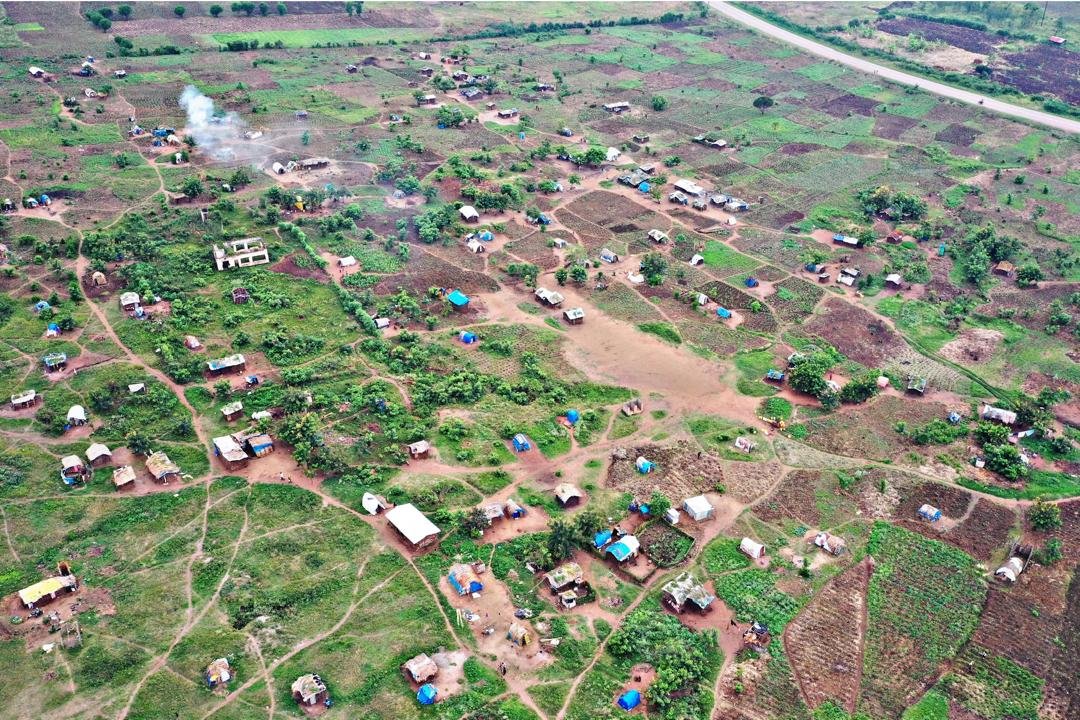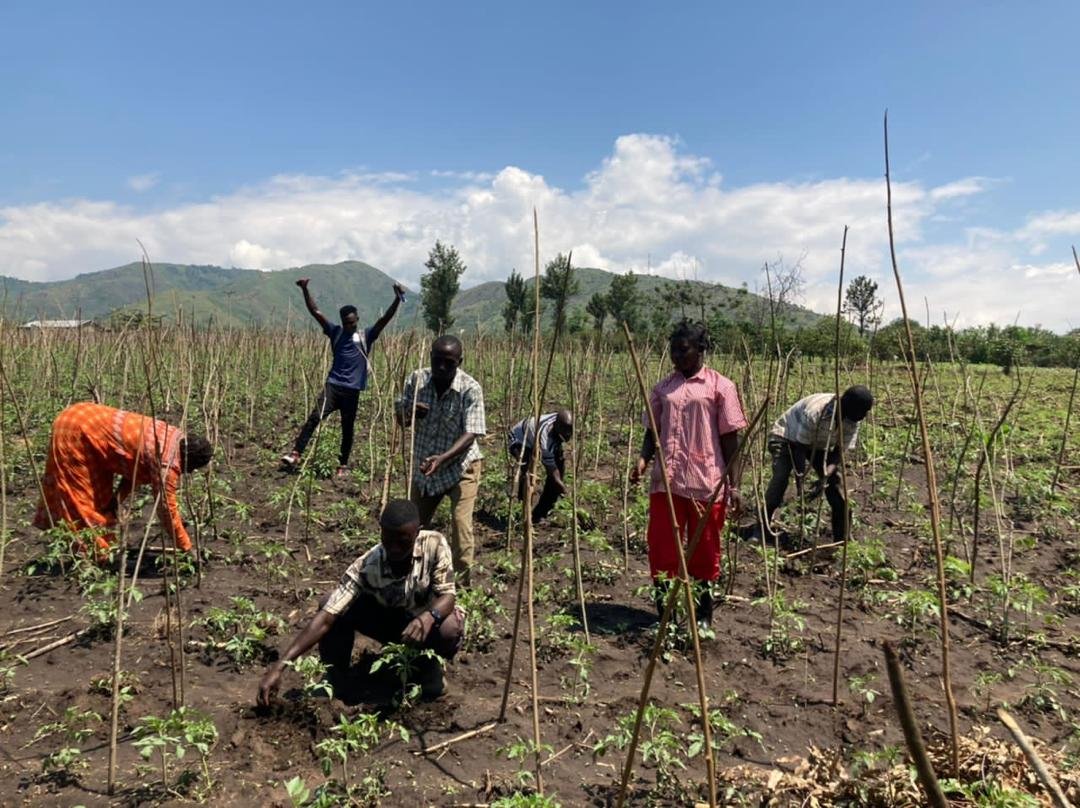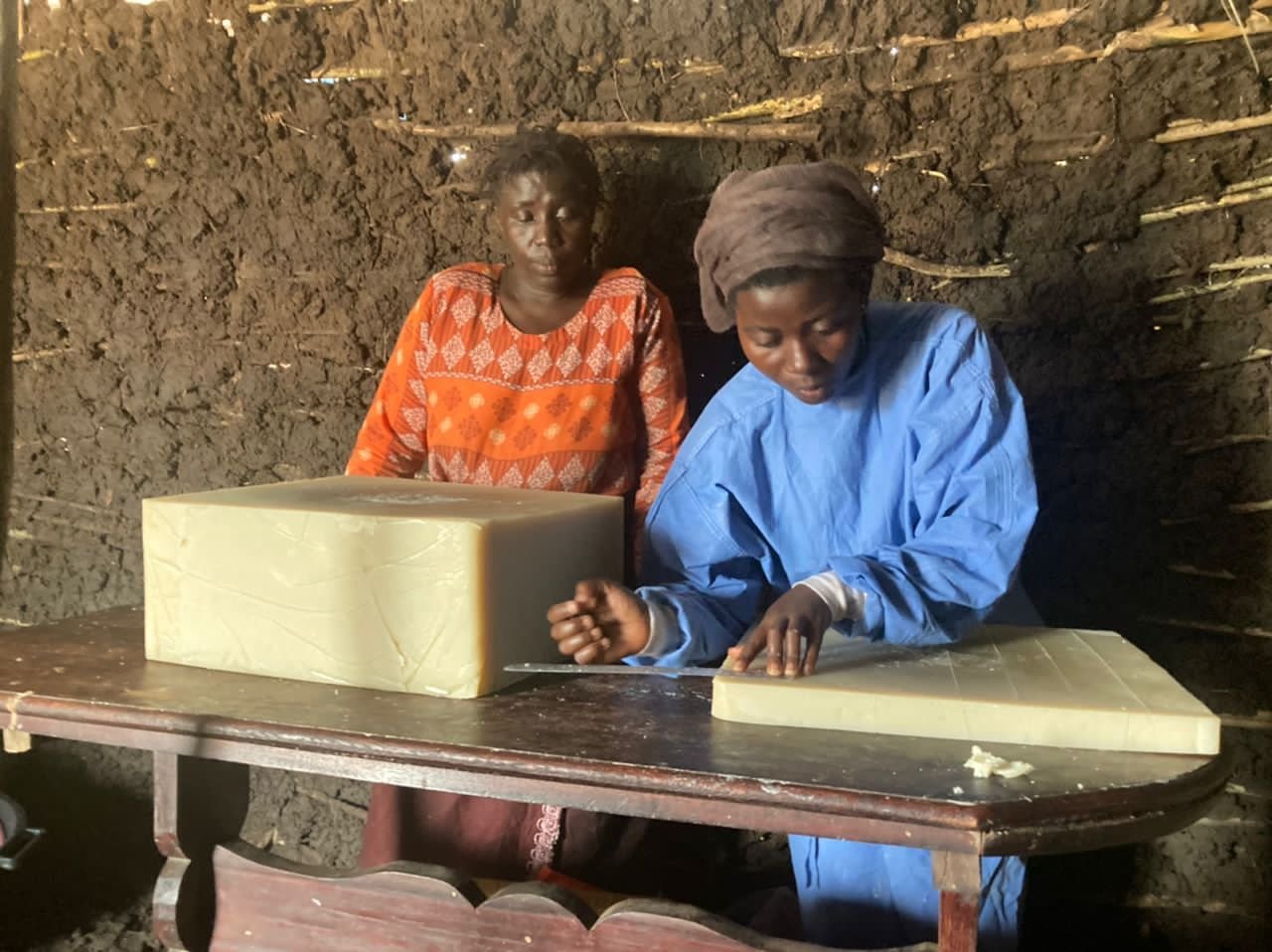
Climate Resilience Program
Driven by our vision of enhancing the adaptive capacity and resilience of communities, this program targets climate-vulnerable communities in Uganda by providing an enabling environment and sustainable livelihood opportunities for the most affected communities to foster their adaptation and resilience. We work with climate-displaced communities (Internally Displaced Persons, IDPs), rural communities, and communities in informal settlements in urban areas and cities.
Muhokya IDP Camp Program
Muhokya IDP Camp Program stands as one of our flagship projects fostering resilience for climate-displaced people living in Muhokya IDP Camp in Kasese District, Western Uganda, through a holistic approach that focuses on sustainable farming for food security and skills development for economic empowerment of climate-displaced people in Muhokya IDP Camp. The camp hosts 200 households with a population of 2000 who were permanently displaced by the recurrent Nyamwamba River flooding in May 2020.
Read below for the project’s two main components.
Sustainable Farming
To ensure that climate-displaced people in Muhokya IDP Camp can grow their food to sustain their households and become self-reliant, we support households in this camp with resources to access agricultural land in the neighboring host communities. Resources include financial costs to rent land, farming equipment, and seeds. In the past 3 years, we have supported 20 households (200+ people) to farm on 10 acres of land and provided training in agroecological farming practices to foster resilient farming practices and enhance food security among displaced households in Muhokya Camp
-
Conducted two capacity-building training sessions for our project participants on agroecological farming practices such as organic pest control, composting, and terracing among others.
-
Improved food security, with participants increasing their daily meals from one to 2–3 meals a day.
Enabled income generation from cash crop sales, improving household welfare.
Facilitated social cohesion between members in the camp and host communities
The transition of participants from conventional to agroecological farming practices
Skill Development
Climate change-induced displacement has facilitated a harsh financial reality for all camp members who predominantly depended on their land to generate income from farming. To address these financial challenges in the camp, Abayuuti Climate Action, for the past three years, has been implementing a skills development project to increase the economic sustainability and viability of camp residents by training technical skills to camp members that promote craft and benefit the local economy.
-
From August 2023 to 2024, Abayuuti provided periodic sewing training to women and girls in the camp. With the help of our two full-time volunteers stationed there, we trained 50 women and girls in tailoring and sewing. One of our cohort groups was contracted in August 2024 by a neighboring school to produce uniforms, generating income to buy additional equipment.
-
Since October 2023, ACAN has delivered soap-making training, equipment, and raw materials, and a group of youths in the camp started training on locally making both liquid and bar soap. 30 youths were trained in liquid and bar soap-making.



